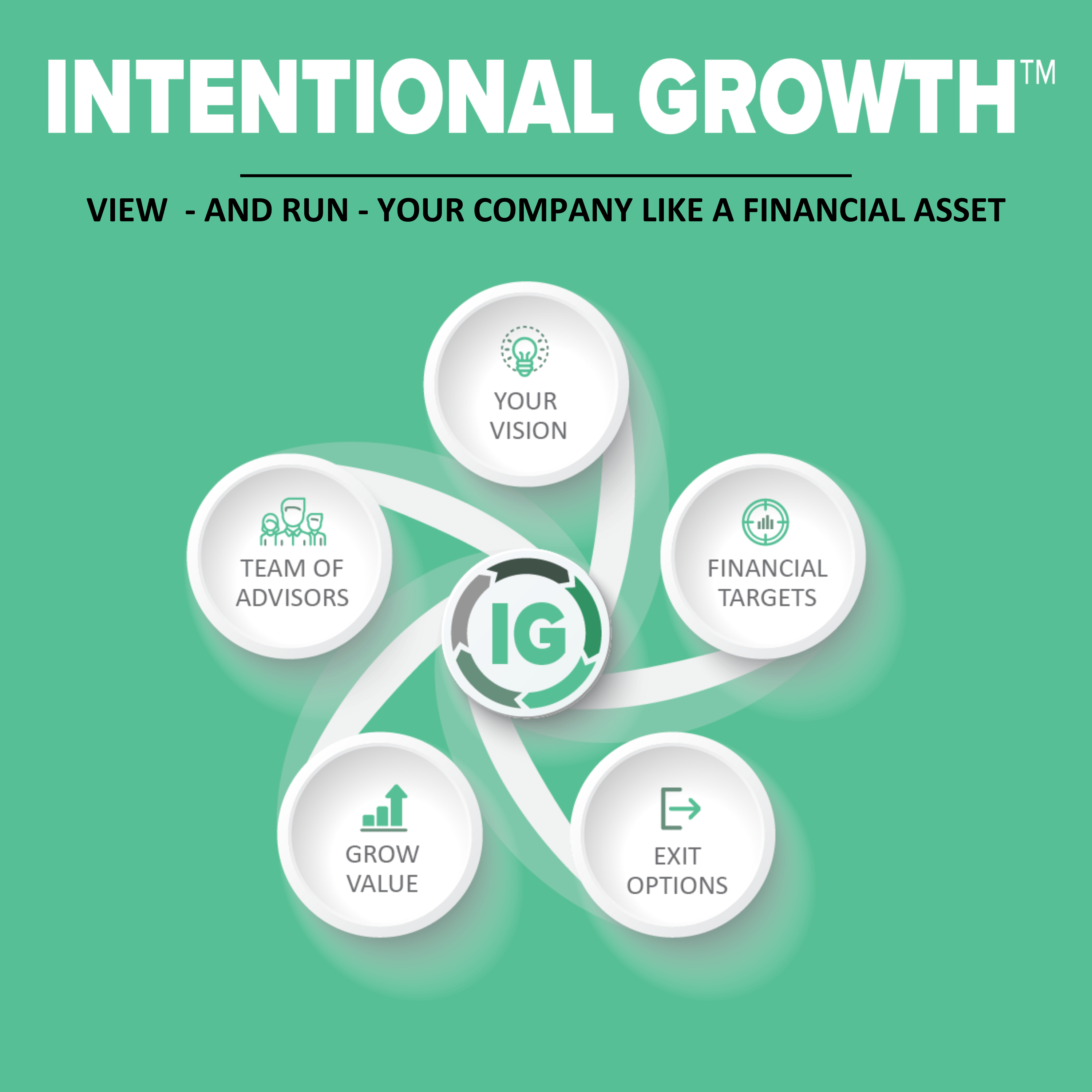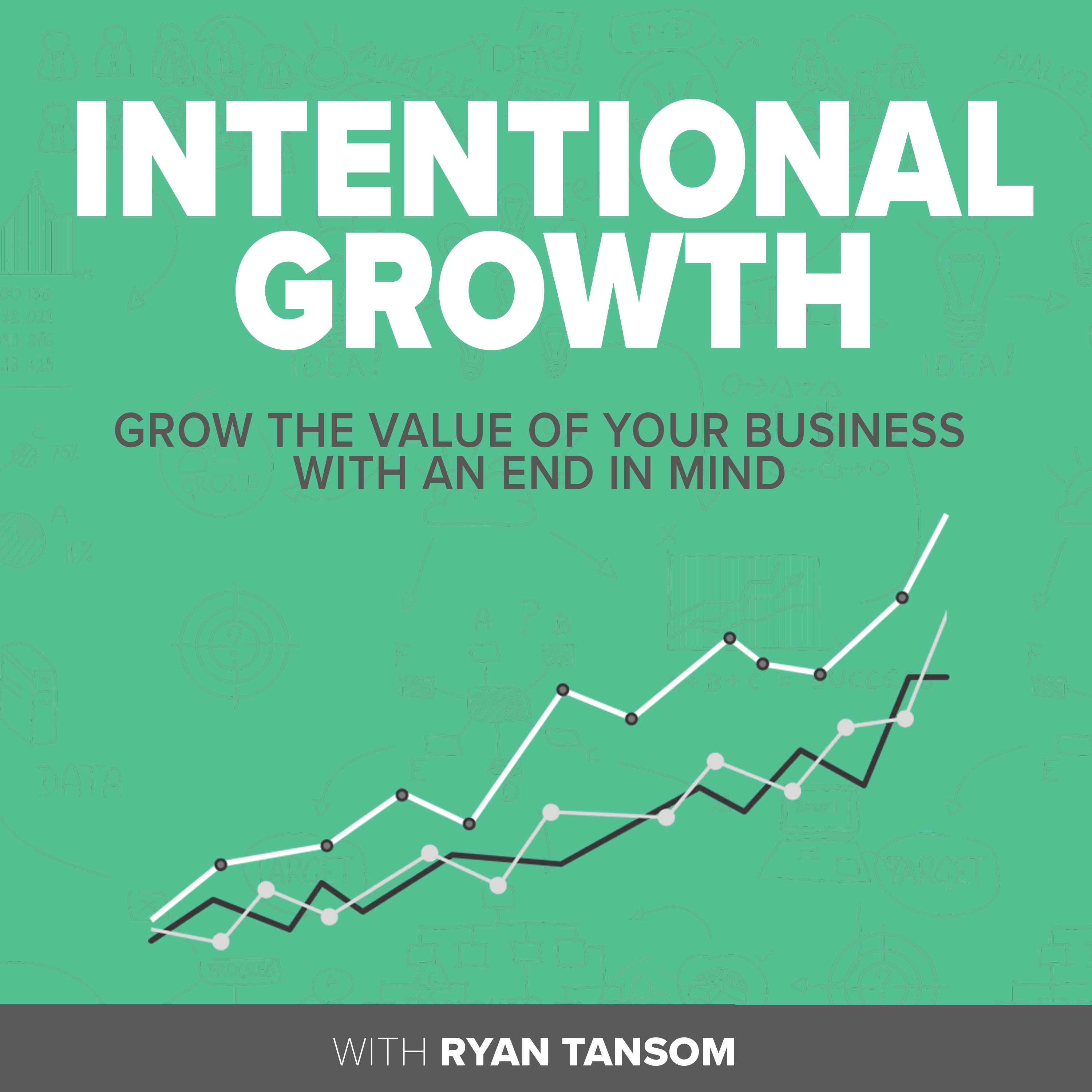Bryan Clayton is a serial entrepreneur with multiple exits under his belt and a unique take on being a business owner — viewing your business like a video game — and how it can help you accomplish your loftiest goals. His first company, PeachTree, grew to be one of the largest landscaping companies in Tennessee at over $10M in annual revenues, before selling in 2013. Bryan only took a short sabbatical (more on that in the interview) before co-founding GreenPal, an online marketplace that connects homeowners with local lawn care professionals. GreenPal is already doing over $20M, over 100,000 active customers, and completes thousands of transactions every day.
Take The 2-Minute Assessment To Get Your Intentional Growth Score™ And 1-Page Vision Board.
Bryan Clayton is a serial entrepreneur with multiple exits under his belt and a unique take on the home services market. He is co-founder of GreenPal, a web and mobile app that instantly connects homeowners with home service professionals, where he actively engages with both his team and customers. Outside of work, Bryan likes to hang out with his family and play video games.
04:45 - “All of the fundamentals you learn in the lawn-mowing business apply to every business.” – Bryan Clayton
08:39 - “My business is the thing that lends purpose to my life. It is the thing that causes my life to be interesting. It is the thing that causes my life to almost matter. I didn’t think about it at the time but looking back at it, that’s the case. That’s just how I’m wired.” – Bryan Clayton
09:30 - “To live an interesting life, you have to live an interesting story. You have to do interesting things in your life” – Bryan Clayton
10:00 - “My business is the storyline to my life.” – Bryan Clayton
11:15 - “I think, if you’re doing business right, every three to four to five years, you should completely evolve as a new person. I’m a completely new person than I was a decade ago when I started this business because the business required that of me.” - Bryan Clayton
15:29 - “To be good at business, you have to be 80-20 good at a lot of different things.” – Bryan Clayton
17:17 - “It might almost be the delineation between a business owner and an entrepreneur.” – Bryan Clayton
21:11 - “So I’m building this company debt-free.” – Bryan Clayton
30:31 - “We had to fund the business off of its own revenue.” – Bryan Clayton
32:16 - “I’m not better than this, I’ve gotta do it.” – Bryan Clayton
34:59 - “Culture doesn’t matter in level 1 or 2.” – Bryan Clayton
37:40 - “Get a single or a double under your belt, then go for the big thing.” – Bryan Clayton
39:11 - “Remove ‘or’ and put ‘and.’” – Bryan Clayton
43:06 - “You spent more money and you’re not mad about it.” – Bryan Clayton
46:44 - “I do at least an hour a day of customer support.” – Bryan Clayton
46:52 - “There’s a gap that develops between customer logic and company logic.” – Bryan Clayton
50:16 - “That's not happening to you. It's happening for you.” – Bryan Clayton
53:09 - “You’ve got to make it really frictionless and accessible to reach you.” – Bryan Clayton
56:22 - “If you’re doing the business right, it should really be you and then the scaffolding around you.” – Bryan Clayton
57:53 - “The more your parents don’t understand what you’re working on, the better your chance of success.” – Bryan Clayton
61:01 - “Your living room needs to be a classroom.” – Bryan Clayton
Bryan Clayton’s Instagram: @bryanmclayton
Greenpal: https://www.yourgreenpal.com/
Mastering Your Cash Flow Digital Course
Reach out to me if you have questions about the boot camp!
You can also reach out to me via email at [email protected], or on my LinkedIn.

Ben Vandenwymelenberg (VW), is the founder of Woodchuck USA and the author of The World Needs Your F*cking Ideas. Woodchuck USA specializes in wood...

The world can be a better place if more entrepreneurs can find a way to align the impact they want to make on the...

Ep.#3 [THEME FIVE] Brent Beshore and his firm Permanent Equity are a perfect example that not all private equity firms are the same. Brent...